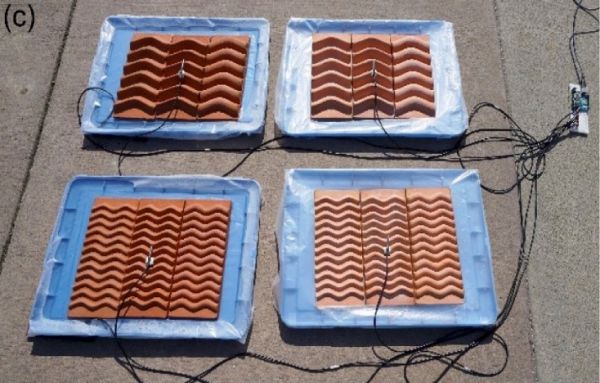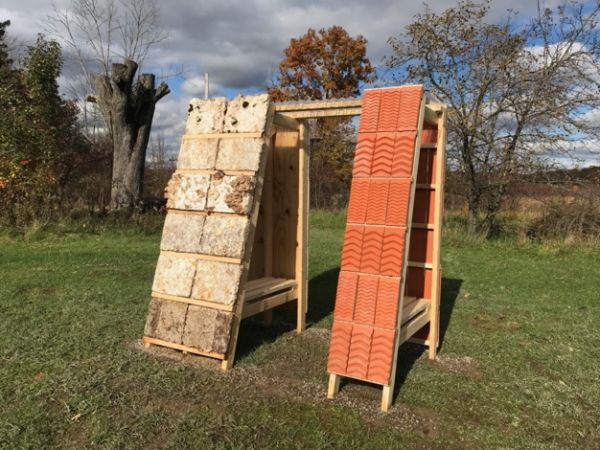BIOCOOL - Bio-inspired Surfaces for the Evaporation Cooling of Building Envelopes
Short Description
Background/Motivation
Due to climate change and the need to reduce overall energy demand in buildings and avoid urban heat islands, there is an urgent need for the further development of passive cooling techniques that reduce energy consumption, support the environment and ecosystem, and provide a satisfactory level of comfort. The improvement of direct evaporative cooling systems for building envelopes aims to improve effectiveness for use in temperate climate zones. Bioinspiration has established itself in recent decades as an innovation method for developing sustainable solutions for the built environment.
The BIOCOOL project consists of an exploration of the transfer of morphological principles from biology to form-optimized ceramic surfaces for conditioning building envelopes.
In deciduous trees, the shapes of leaves determine the thermal properties and particularly the efficiency of evaporation and thus cooling. Deriving from this phenomenon offers a starting point for the development of optimized shapes for building components.
Integration into the building system, particularly the water cycle and energy management, and the impact on the urban space at pedestrian and neighborhood levels, are examined in concepts and simulations. The building envelope is interpreted as an energy carrier and an active element in terms of ecosystem services, and the impact on the urban space and environment is estimated at multiple scales and aspects.
The study is conducted by two academic institutions with long-standing experience in energy design and building physics, involving students. The market proximity and economic viability of the innovation are ensured in workshops with industry stakeholders.
BIOCOOL paves the way for an industrial research project by preparing data on proof-of-concept prototypes, experiments, and analyses of the impact of the new technology.
Content and objectives
The aim of this project is to demonstrate that based on the fundamental research and new insights into design principles, panels made of porous materials with 3D surface structures can be produced using parametric design and simulations. This form-function relationship and the use of specially adapted ceramic materials with defined porosity and microstructure can increase the evaporation efficiency of the elements compared to conventional technologies. The performance of the installed prototypes in terms of their thermal properties was investigated, comparatively evaluated, and sustainable low-tech concepts for system integration were designed.
Methodological approach
After an extensive material study, a set of several plates is created, which are digitally optimized for shape. A proof-of-concept mockup in outdoor space is used to generate data that is then analyzed.
Results and conclusions
The effectiveness of ceramic panels with different color and 3D surfaces could be demonstrated. Solution approaches could be demonstrated, but they are only feasible on the basis of the design of building materials, assuming careful irrigation.
Outlook
The BIOCOOL project demonstrates that passive cooling can be achieved through evaporation. This exploration is not only interesting for the building sector but also for other technology areas in which heat exchangers can be used.
Project Partners
Project management
Bernhard Sommer - University of Applied Arts Vienna, Department Energy Design
Project or cooperation partners
- Sascha Alexandra Zaitseva - University of Applied Arts Vienna, Ceramics Studio
- Ulrich Pont - Vienna University of Technology, Department of Building Physics and Building Ecology
Contact Address
Bernhard Sommer und Petra Gruber
University of Applied Arts Vienna
Oskar Kokoschka-Platz 2
A-1010 Vienna
Tel.: +43 (1) 71133-2372
E-mail: bernhard.sommer@uni-ak.ac.at, petra.gruber@gmail.com
Web: www.dieangewandte.at


